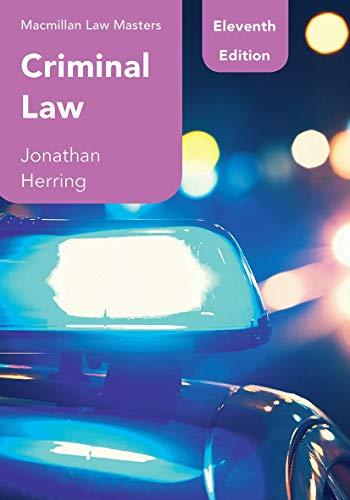Question
Once that the youth started getting arrested for minor offenses, they got into the system.Once they were into the system, they got into more trouble
Once that the youth started getting arrested for minor offenses, they got into the system.Once they were into the system, they got into more trouble because of technical system rule violations.The system was making it difficult for the youth to complete the programs successfully.
"Joey's friends started getting arrested around 12 years old, for the first time.These were usually for minor violations like shoplifting or status offenses like curfew, smoking, and drinking.After they started in the criminal justice system, most of them continued to get in trouble.Only a couple of Joey's friends could get off juvenile supervision or did not continue to have frequent criminal justice contacts.
Joey's friends would continue to get caught doing something wrong.About half the time, it was the police arresting them for some new crime or status offense.The other half of the time, the system held them accountable for a supervision rule violation.Most of Joey's friends have court-ordered things they are not supposed to do and other things they must do.These are items like; stay sober, drug testing, stay away from other people in trouble, do not possess drugs, do not get in more trouble, etc.Each time the friend would get taken into the system, they would meet new people and come back with new ideas.The other thing they learned is that they did not have to stay long in the detention centers, if at all.Many times, they just had to check in with an officer, or were put on community supervision with no actual supervision, just a notice that if police have future contact, the offender and police are to notify community corrections about that contact."
discuss two approaches that the courts could take regarding the processing or disposition of Joey's friends that you can justify based on 1) Classical Theory; and 2) a Positivist theory of criminology. Compare and contrast the two theories regarding how each approach would or would not help reduce or prevent criminal behavior.
Step by Step Solution
There are 3 Steps involved in it
Step: 1

Get Instant Access to Expert-Tailored Solutions
See step-by-step solutions with expert insights and AI powered tools for academic success
Step: 2

Step: 3

Ace Your Homework with AI
Get the answers you need in no time with our AI-driven, step-by-step assistance
Get Started


